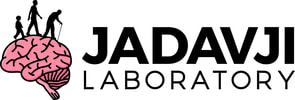Dr. Jadavji's teaching and research supervision philosophy centers around the student-focused approach. In her classes and laboratory, she target needs and knowledge deficits, as well as encourage collaboration between students. Dr. Jadavji integrate tools such as peer learning, connections to real life examples, or the scientific method that facilitate developing critical thinking and clear communication skills. In all her courses, she administers anonymous mid-semester student feedback.
To encourage critical thinking skills, Dr. Jadavji facilitates student participation in lectures through peer learning and posing questions to the students during lectures using clickers. For example, in a graduate course she taught at the Charité Medical University, she took the opportunity to critically analyze the methods, results, and implications of a published study that reported how a nutritional deficiency in folic acid resulted in neurodegeneration. Dr. Jadavji went through the study during a lecture, so she could model this technique to my students. Later in the semester students were required to present a published study of their choice to the class, because of my demonstration students had higher marks on the assessment. These graduate students learned how to critically analyze published studies that they could then apply to other classes, their thesis research, and experimental design.
Dr. Jadavji also incorporates real life examples and experiences into her lectures. In her Learning in Retirement courses, when she described neurological diseases, such as stroke, she showed participants short video clips of affected patients. After watching the video clips, the class discussed the content together. Dr. Jadavji encourages participants to summarize what they saw, and she connects the lecture material to real life examples. Participants are able to take away a deeper understanding of how normal behaviors can be affected after a stroke. On course evaluations several participants commented on how effective the video clips were with connecting lecture materials to everyday life.
Her goal with research supervision is to recognize and address the unique needs of each student to ensure success in the laboratory. At Carleton University Dr. Jadavji taught an Honor’s thesis undergraduate course where students wrote a literature review. She met with interested students to provide them with feedback so that they could revise their reviews for publication. A total of 7 students submitted and published their work in the Journal of Young Investigators (JYI), an international peer review journal. Additionally, 2 of the manuscripts were nominated for Best of JYI in 2017. These students learned about the peer review process first hand and were able to have more competitive applications for graduate school and employment after they completed their undergraduate degrees.
Teaching science provides many opportunities to stimulate students’ thinking. To this end, Dr. Jadavji strive to engage students and to foster an understanding of the world around them through interactive learning. Students leave her classes having mastered core scientific concepts, clear communication, and critical thinking skills.
To encourage critical thinking skills, Dr. Jadavji facilitates student participation in lectures through peer learning and posing questions to the students during lectures using clickers. For example, in a graduate course she taught at the Charité Medical University, she took the opportunity to critically analyze the methods, results, and implications of a published study that reported how a nutritional deficiency in folic acid resulted in neurodegeneration. Dr. Jadavji went through the study during a lecture, so she could model this technique to my students. Later in the semester students were required to present a published study of their choice to the class, because of my demonstration students had higher marks on the assessment. These graduate students learned how to critically analyze published studies that they could then apply to other classes, their thesis research, and experimental design.
Dr. Jadavji also incorporates real life examples and experiences into her lectures. In her Learning in Retirement courses, when she described neurological diseases, such as stroke, she showed participants short video clips of affected patients. After watching the video clips, the class discussed the content together. Dr. Jadavji encourages participants to summarize what they saw, and she connects the lecture material to real life examples. Participants are able to take away a deeper understanding of how normal behaviors can be affected after a stroke. On course evaluations several participants commented on how effective the video clips were with connecting lecture materials to everyday life.
Her goal with research supervision is to recognize and address the unique needs of each student to ensure success in the laboratory. At Carleton University Dr. Jadavji taught an Honor’s thesis undergraduate course where students wrote a literature review. She met with interested students to provide them with feedback so that they could revise their reviews for publication. A total of 7 students submitted and published their work in the Journal of Young Investigators (JYI), an international peer review journal. Additionally, 2 of the manuscripts were nominated for Best of JYI in 2017. These students learned about the peer review process first hand and were able to have more competitive applications for graduate school and employment after they completed their undergraduate degrees.
Teaching science provides many opportunities to stimulate students’ thinking. To this end, Dr. Jadavji strive to engage students and to foster an understanding of the world around them through interactive learning. Students leave her classes having mastered core scientific concepts, clear communication, and critical thinking skills.
